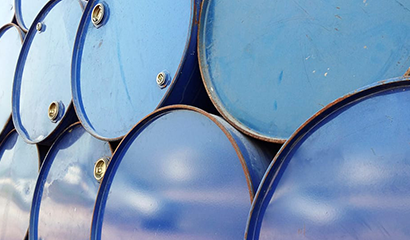Macron’s gamble on snap elections unlikely to freeze timid French M&A recovery for now
- French M&A so far has been driven by deals immune from political risk
- RN-dominated assembly could undermine Macron’s pro-business agenda French President
Emmanuel Macron’s surprising decision to call snap parliamentary elections is unlikely to put a dent in the country’s timid rebound in M&A, at least for the time being, several French dealmakers said.
With less inflationary pressure, France has experienced a surge in early-look meetings in 1H24, as well as solid M&A dealflow, dealmakers said.
Most of the transactions coming into the market are largely immune from political risks, particularly outbound M&A, they also said.
Before Macron’s centrist coalition suffered a setback in early June’s EU elections, the market was seeing modest deal activity. The French market has registered deal volumes of EUR 37.1bn over 648 deals so far in the year to date (YTD), up 0.5% from YTD23 (EUR 36.8bn), according to Mergermarket data.
Well-funded large domestic flagship groups have been driving the trend with EUR 2bn+ outbound deals including Saint-Gobain [EPA:SGO] acquisition of Australian CSR [ASX:CSR], which was approved by the local authorities last week; and the proposed acquisition of South African MultiChoice by Vivendi’s [EPA:VIV] France-based broadcast specialist Canal+.
Usually M&A deals are not much affected by elections, although deal activity often dries up before an uncertain vote. Risks would only rest on transactions in heavily regulated industries, strategic sectors, for which the state is directly involved, or falling in the scope of the country’s foreign investment control scheme (FDI), bankers and lawyers agreed.
The auction of French software publisher Orisha kicked off last week, as reported. Meanwhile, healthcare giant Sanofi [EPA:SAN; NASDAQ:SNY] has launched a dual-track process for its consumer healthcare division valued around EUR 20bn+, as reported.
Legal and financial uncertainties
Despite the optimism of dealmakers, storm clouds are gathering. Ratings agency S&P stung Macron at the end of May with a credit downgrade, citing a deterioration in the country’s budgetary position.
Meanwhile, Marine Le Pen’s far-right National Rally (RN) won the recent European elections, prompting Macron to call snap parliamentary elections. Moody’s has warned that the move could hurt France’s credit rating.
Macron, who has a presidential mandate to 2027, could find himself without a majority in parliament as a result of the two-round parliamentary election, due on 30 June and 7 July.
There is a risk of Macron’s centrist pro-business platform being undermined if RN continues to do well in the polls. The far-right party supports economic interventionism and protectionism even towards EU partners.
Since Macron took office in 2017, he has sought to ensure legal stability with a coherent pro-business agenda which turned France into Europe’s top foreign investment destination for five years in a row, according to various studies.
The current political situation has already put strains on France’s stock market. This could well impact the valuation of some M&A transactions if uncertainty persists, dealmakers said.
Macron has also been actively encouraging startups in areas like artificial intelligence (AI), mobility, healthcare, energy efficiency, and agrifood with tax breaks and subsidies. As well as seeking to develop unicorns and soonicorns, government support for innovation has also helped French IPOs, including Exosens and Planisware.
It is probably too soon to draw any definitive conclusions one way or another especially as a left block is also gaining traction, but one thing is for certain: the world is watching France.










